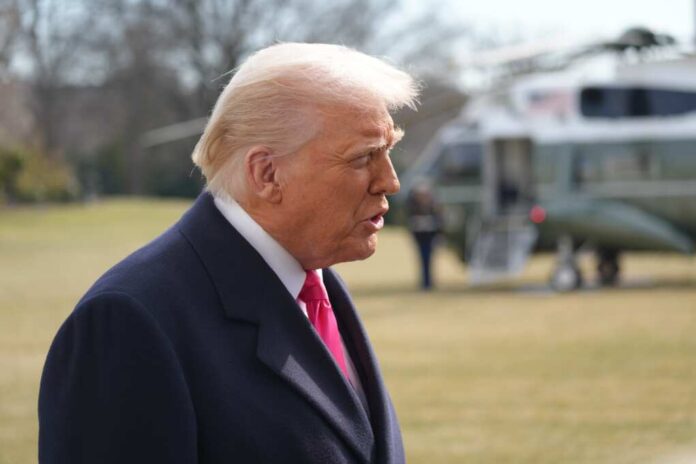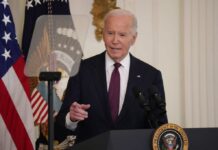
Russell Vought, President Trump’s budget chief, claims he can slash the federal workforce without congressional approval, igniting a fierce debate over executive power and fiscal responsibility.
At a Glance
- OMB Director Russell Vought asserts that most federal workforce reductions can proceed without Congress
- The “One Big Beautiful Bill” proposes $175 billion in cuts, targeting agencies like USAID and public broadcasting
- The administration considers using “impoundment” to withhold congressionally approved funds
- The Congressional Budget Office estimates the bill could increase the deficit by $3.8 trillion over a decade
- Elon Musk, initially leading the Department of Government Efficiency, criticizes the bill’s fiscal impact
Executive Authority and the Push for Cuts
Russell Vought, Director of the Office of Management and Budget, has outlined a sweeping strategy to reduce the federal workforce, asserting that the executive branch possesses the authority to implement most of these cuts without congressional approval. This plan aligns with the Trump administration’s broader aim to streamline federal operations and curtail what it views as runaway bureaucracy. Vought’s reliance on “executive tools” sidesteps legislative hurdles, raising sharp questions about separation of powers.
At the center of the initiative is the so-called “One Big Beautiful Bill”, a legislative package that seeks $175 billion in cuts, targeting agencies including the U.S. Agency for International Development and public broadcasting. These cuts, some jokingly referred to as “DOGE cuts” in homage to Elon Musk’s involvement, represent the administration’s most aggressive effort to downsize the government in decades.
To bolster its position, the administration is also exploring reviving the practice of impoundment, a tactic that would allow the president to withhold funds even after Congress has approved them. Though restricted by the 1974 Impoundment Control Act, Vought contends the executive retains constitutional authority to block spending under certain conditions.
Watch a report: Vought discusses federal workforce cuts.
Fiscal Implications and Internal Dissent
The Congressional Budget Office projects that the “Big Beautiful Bill” could increase the national deficit by $3.8 trillion over ten years, largely due to proposed tax cut extensions and spending changes. This dire forecast contradicts the administration’s assurances that economic growth will offset revenue losses and has intensified scrutiny from fiscal conservatives.
Even Elon Musk, who once championed government efficiency as head of the Department of Government Efficiency, has voiced skepticism over the bill’s fiscal trajectory. Musk warned that while the administration’s intent to reduce inefficiency is laudable, the current package could ultimately exacerbate the debt problem it aims to solve.
Despite the controversy, the bill narrowly passed the House 215-214 and now faces a contentious battle in the Senate. Majority Leader John Thune must bridge internal GOP divisions between budget hawks and loyalists eager to advance Trump’s agenda.
Broader Political and Social Impact
Critics argue that the cuts—especially those affecting programs like Medicaid and SNAP—could harm low-income Americans and dismantle essential services. Advocacy groups warn that reducing government spending without targeted safeguards risks destabilizing support systems that millions rely on.
In parallel, the administration’s reliance on executive tools like impoundment is drawing constitutional scrutiny. Legal scholars and watchdog groups warn that this strategy challenges congressional budgetary authority, potentially setting a precedent for unilateral executive control over spending.
As debate escalates, the future of the “One Big Beautiful Bill” could reshape not just America’s fiscal outlook, but the balance of power between its branches of government. Whether Vought’s vision will mark a new era of lean governance or constitutional overreach remains to be seen.




















